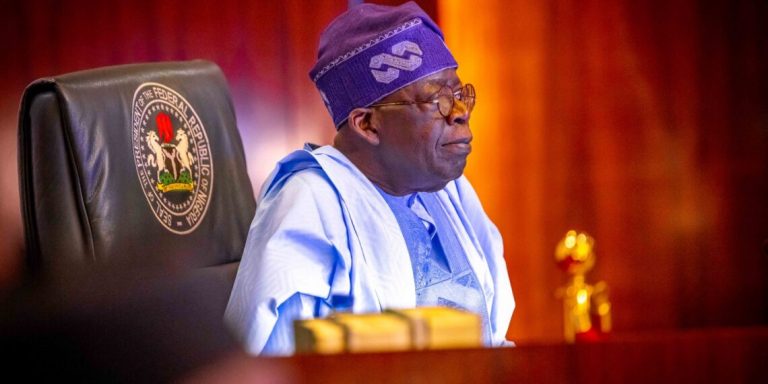
The Nigerian government’s plan to review the salaries of political, judicial, and other public officers by 114% has resulted in a heavy backlash. The backlash is being buoyed by current harsh economic realities orchestrated by President Bola Tinubu’s policy changes.
On Tuesday, the Chairman of the Revenue Mobilization, Allocation and Fiscal Commission (RMAFC), Muhammadu Shehu, confirmed, during the presentation of reports of the reviewed remuneration package to Kebbi State governor, Dr. Nasir Idris, in Birnin Kebbi, that the salaries will be reviewed upward.
Shehu, represented by the Federal Commissioner, Rakiya Tanko-Ayuba, said the move was in line with the provision of Paragraph 32(d) of Part 1 of the Third Schedule of the 1999 Constitution of the Federal Government (as amended).
Register for Tekedia Mini-MBA edition 19 (Feb 9 – May 2, 2026): big discounts for early bird.
Tekedia AI in Business Masterclass opens registrations.
Join Tekedia Capital Syndicate and co-invest in great global startups.
Register for Tekedia AI Lab: From Technical Design to Deployment (next edition begins Jan 24 2026).
“It empowers the Revenue Mobilization, Allocation and Fiscal Commission to determine the remuneration appropriate for political office holders, including the President, Vice President, Governors, Deputy Governors, Ministers, Commissioners, Special Advisers, Legislators, and the holders of the offices mentioned in Sections 84 and 124 of the Constitution of the Federal Republic of Nigeria,” he was quoted by NAN as saying.
The event was a continuation of the one-day zonal public hearing on the review of the remuneration package simultaneously in all the six geo-political zones of the country on 1st February 2023.
Shehu said the remuneration review is long overdue, referencing the last review which was carried out in 2007, culminating in the Certain Political, Public and Judicial Office Holders (Salaries and Allowances, etc.) (Amendment) Act, 2008.
“16 years after the last review, it is imperative that the Remuneration Packages for the categories of the office holders mentioned in relevant Sections of the 1999 Constitution (as amended) should be reviewed,” he added.
According to the chairman, the commission has reviewed the remuneration packages as contained in these reports based on a combination of subjective and objective criteria obtained from analysis of macro-economic variables particularly the Consumer Price Index (CPI) among others.
He said that having considered the impact of the review on the economy, the remuneration of the political, public, and judicial office holders in the country was adjusted upward by 114%.
However, the move is coming at a time when Nigeria is facing a heavy economic downturn, following policy changes that involved the removal of petrol and electricity subsidies and the floating of the naira.
The policy changes were implemented without provisions to cushion their economic effects. The government is still working with Civil Society Organizations to develop a framework for the increment of the N30,000 monthly minimum wage.
Against this backdrop, the RMAFC’s decision to conduct an upward review of the salaries of public office holders is seen as a slap on the face of Nigerians.
Shehu said during an interview with AriseTV on Wednesday, that the 114% review has become necessary because CPI has gone up by more than 300% since 2007, when it was last reviewed.
He added that considering the current economic situation, the review has been narrowed to the basic salary of public officers. The chairman explained that concerning allowances and fringe benefits, the commission recommended that the existing allowances be maintained at the current levels since that would translate to higher provisions in actual amounts when applied to the reviewed annual basic salary.
However, his explanation has failed to calm the avalanche of protest trailing the review as it is generally seen as an indication of the government’s insouciance towards the plights of Nigerians.
“Raising the minimum wage of poor workers should come first before that of the elites holding public offices. With this 114% increase, a Federal Legislator will earn about N2million monthly salary and N25 million monthly running cost for his office. Money derived from the removal of subsidies should be spent wisely,” former Senator, Shehu Sani said.



